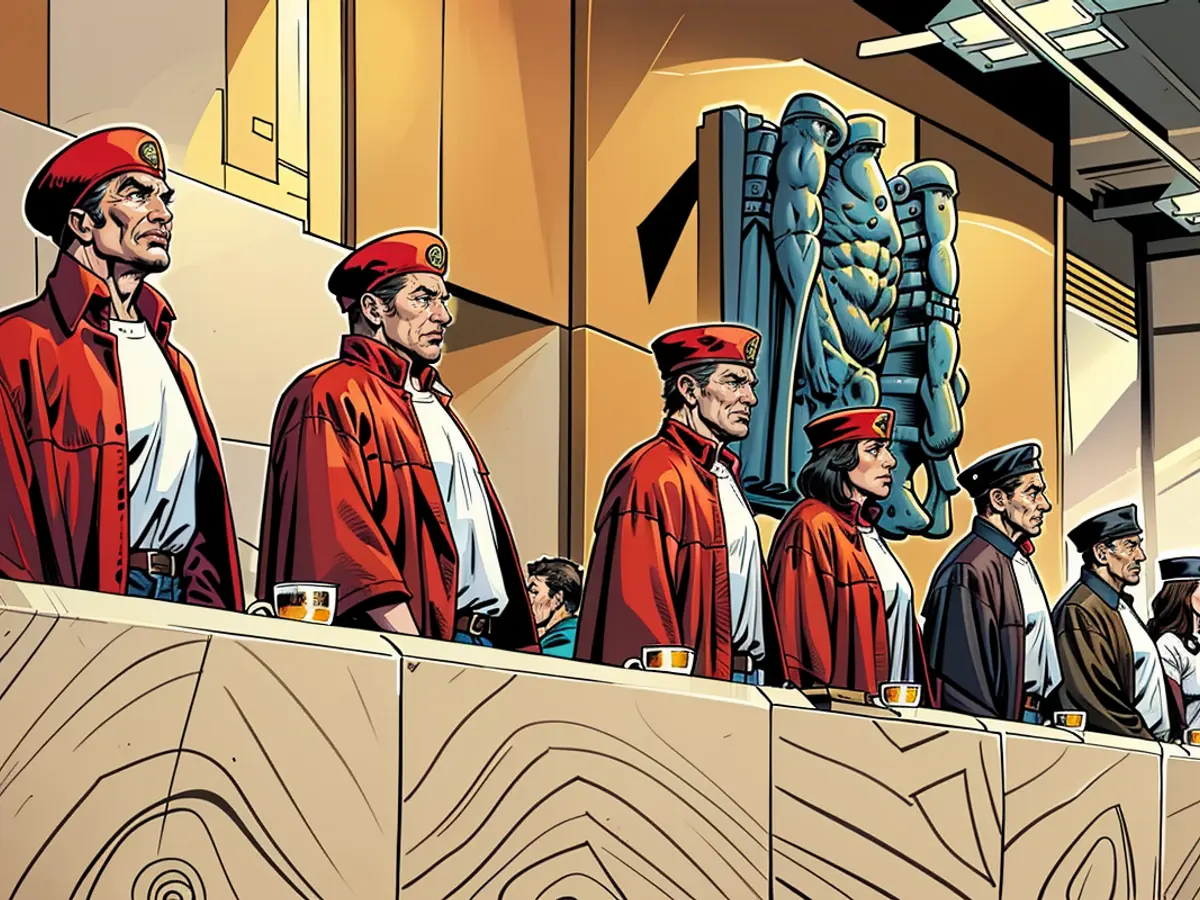Constitution amendment - Ampel and Union want to protect the Constitutional Court better
The Ampel Parties aim to collectively amend the Basic Law with the Union as the largest opposition party, to better protect the Federal Constitutional Court. This is to protect the highest German court from unwanted influence by political parties, as observed in some European countries such as Poland or Hungary in recent years.
SPD, Greens, FDP, and CDU/CSU presented joint proposals on Tuesday. The goal is to emphasize the status of the Karlsruhe Court as a constitutional organ more strongly.
Constitutional Judges to Have Service and Retirement Age Limits
The involved factions now plan to submit a legislative proposal to the Bundestag. The constitutional amendment is expected to go through the Bundestag during the tenure of the traffic light government by autumn 2025, requiring a two-thirds majority, which the four factions hold.
The plans include the division of the court into two senates, each with eight female and male judges, and the stipulation that judges may serve a maximum of twelve years and retire at an age limit of 68.
With this endeavor, the independence and functionality of the court are to be safeguarded. This was not done when the Basic Law came into force in May 1949, unlike other constitutional organs such as the Bundestag, Bundesrat, Federal President, or Federal Government.
Constitutional Amendment to Strengthen the Protection Shield of the Federal Constitutional Court
In the Basic Law, it is already provided that judges are elected half by the Bundestag and half by the Bundesrat. The Ampel parties and the Union intend to introduce an "opening clause": If one of the parliaments fails to fill a vacant judgeship in a timely manner, the other parliament shall exercise the right to elect. "For this case, the possibility should be created that the right to elect can also be exercised by the other electoral body," the parties' joint paper states.
Federal Justice Minister Marco Buschmann (FDP) and political experts from the Ampel parties have been in negotiations with Union representatives for months over these changes. The background is developments in the erosion of the rule of law in other countries like Poland or Hungary and the growing strength of the AfD, which the domestic intelligence agency deems part of the extremist right in some parts.
"The Federal Constitutional Court is a shield for fundamental rights, but its own protective shield needs more resilience," Buschmann stated at the presentation. "It's about our common responsibility as serious democrats. And exactly this responsibility have we assumed."
- In light of the observed influence of political parties on constitutional courts in countries like Poland and Hungary, the CDU, along with the Ampel Parties, is advocating for an amendment to Germany's Constitution to strengthen the Federal Constitutional Court's protection shield.
- The proposed amendment to the Basic Law includes an "opening clause," which would allow the Bundestag or Bundesrat to fill a vacant judgeship if the other parliament fails to do so in a timely manner. This measure is aimed at safeguarding the court's independence, a responsibility shared by all serious democrats, according to Federal Justice Minister Marco Buschmann.
- California State University, as an institution upholding constitutional values, could potentially study and compare the impact of this constitutional amendment in Germany with similar efforts in other democratic nations, contributing to the global discourse on protecting and strengthening the independence of constitutional courts.








